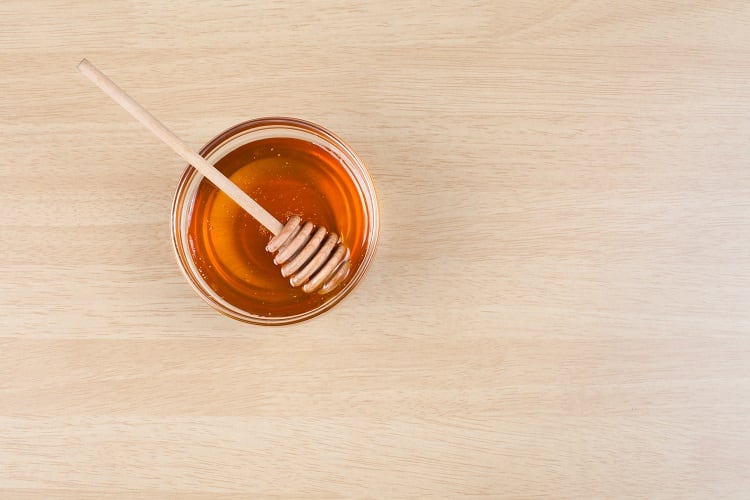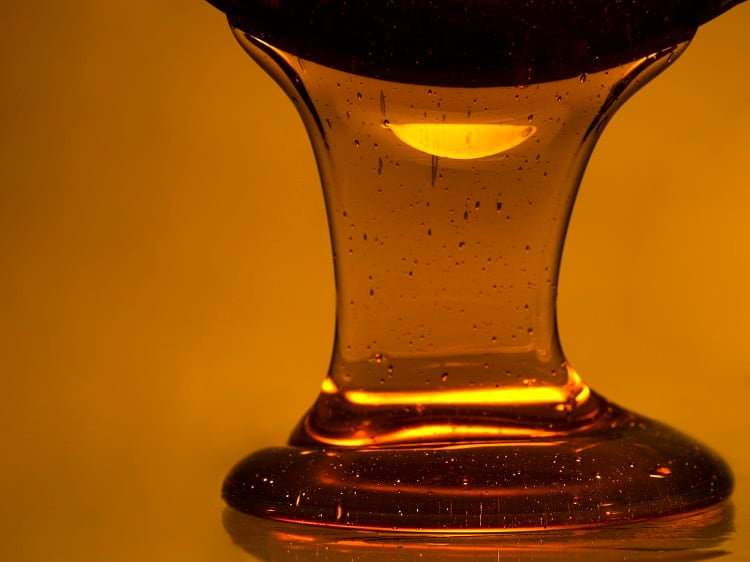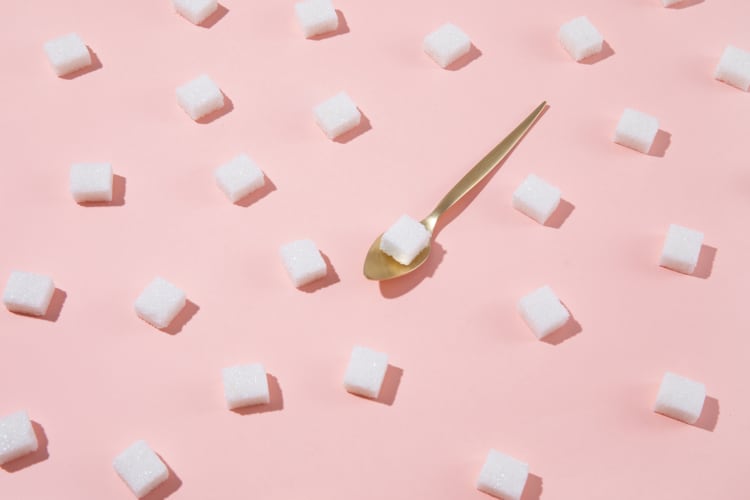Founded in 2020 by scientist Aaaron Schaller and honey industry veteran Darko Mandich, MeliBio is tackling ‘critical issues’ facing the commercial honey industry with a plant-based alternative.
The commercial honey industry is plagued by the use of pesticides and adulterants, while bee populations are declining due to extreme weather events, according to the start-up, who hopes its bee-free alternative will provide a solution these crises.
MeliBio’s first product, a plant-based honey ingredient for B2B and foodservice, was unveiled in October 2021. Now, the start-up is preparing to launch a B2B2C plant-based bee-free honey via a partnership with Narayan Foods in Europe.
If not made with bees…then with what?
MeliBio’s approach to making bee-free honey is complex. To begin with, the start-up set out to understand how different plants affect different parts of honey, as a whole. MeliBio then took those plants and turned them into starting ingredients, explained co-founder and CEO Darko Mandich.
“After that, we use those starting ingredients as inputs in the process that we created, that results in the final product, which is the closest product so far to resemble honey.
“We do that sustainably and more efficiently than honeybees,” he told FoodNavigator. “Honey in nature is made only within 9-12 weeks while we can do it all year-round and fix the broken supply chain.”
As to precisely which plant-based ingredients MeliBio uses in its final formulation, it’s a question of ‘wait and see’: “Full ingredients lists will be available on the product once it officially hits shelves early next year.”
Comparable nutritional profile
MeliBio’s aim is to mimic conventional honey with plants.
From a nutritional perspective, conventional honey contains 40% fructose and 30% glucose. “The sweetness of honey comes from sugars that are naturally occurring in this product,” explained the CEO. “We match the same sugars at a similar ratio as is found in honey in nature.
“Therefore, everyone consuming honey from the bees [as well as] our plant-based honey made without bees will expect the same level of sweetness.”
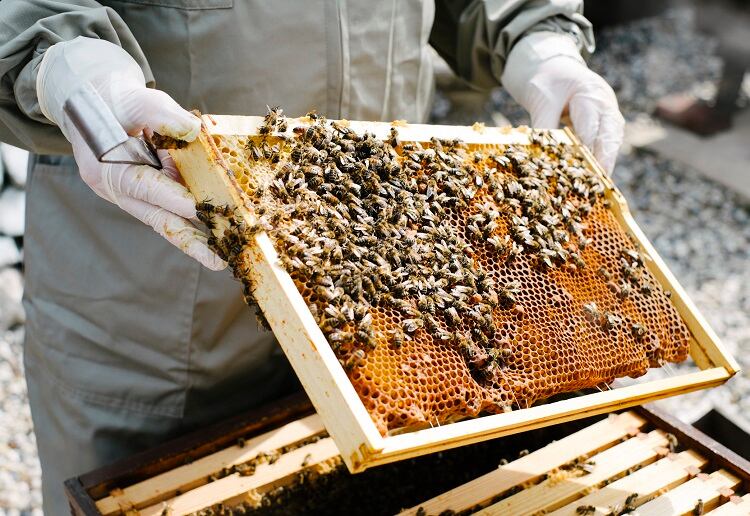
As to how the start-up has mimicked other attributes of conventional honey, Mandich explained colour and ‘other attributes’ have been achieved thanks to a ‘proprietary plant extract blend’, as well as other compounds naturally found in honey. Overall, the nutritional profiles of conventional honey and MeliBio’s plant-based alternative ‘are the same’, we were told.
MeliBio ‘alleviates’ pressure on bees
The start-up is also convinced its approach is founded on sustainable production methods.
“Imagine how exciting it is for our team to achieve that milestone while creating an innovative approach that is sustainable,” Mandich told this publication. “Honey made through commercial beekeeping using managed honeybees comes at a cost to 20,000 wild and native bees that are pushed back from managed bees.”
MeliBio says it is ‘finally alleviating’ that pressure from the world’s ‘precious bees’ while delivering ‘delicious’ and ‘nutritious’ products.
At the same time, the start-up says its plant-based honey alternative is safe for all ages. It is recommended that babies under the age of one avoid consuming honey, as it has been known to contain Clostridium botulinum spores which could lead to infant botulism, a rare but life-threatening disease caused by toxins produced by Clostridium botulinum bacteria.
“For consumers everywhere, what is also very exciting is that our honey is pesticide-free and free of Clostridium, which makes it safe for baby food formulations.”
Alt honey roll-out in Europe
In Europe, MeliBio’s honey alternative will be sold by Narayan Foods under its Better Foodie brand into up to 75,000 stores in Europe. The product will be available for private label opportunities, using MeliBio’s technology and Narayan Foods’ operational capabilities. First batches will be shipped in early 2023.
“Our European partner Narayan Foods will position the Better Foodie brand on the premium side at first, and then hopefully move it to the mainstream, matching the price of European honeys,” Mandich explained.
“We are excited for more partnerships that will result in more products being formulated with our plant-based honey made without bees.”
From Narayan Foods' perspective, the company said it is ‘constantly’ on the lookout for novel sustainable products. “Just by tasting MeliBio’s incredible plant-based honey, we knew we had discovered an innovation that would leave a distinctive mark in the industry,” said Mario Brumat, founder and CEO of Narayan Foods.
“We’re thrilled to bring the world’s first plant-based honey to every European household and establish it as the new favourite sweetener.”
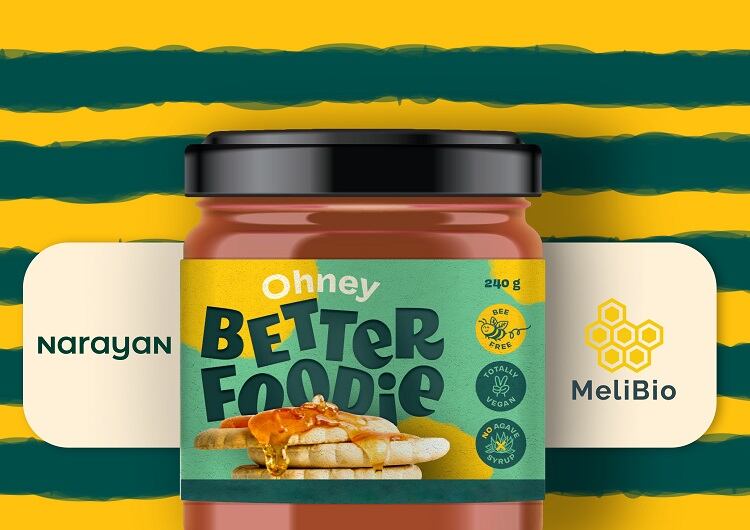
At the same time, MeliBio is announcing an additional $2.2m (€2.09m) investment from existing investors including Collaborative Fund and Siddhi Capital, as well as new investor The Greenbaum Foundation. The company’s total funding up to date now reaches $9.4m.


